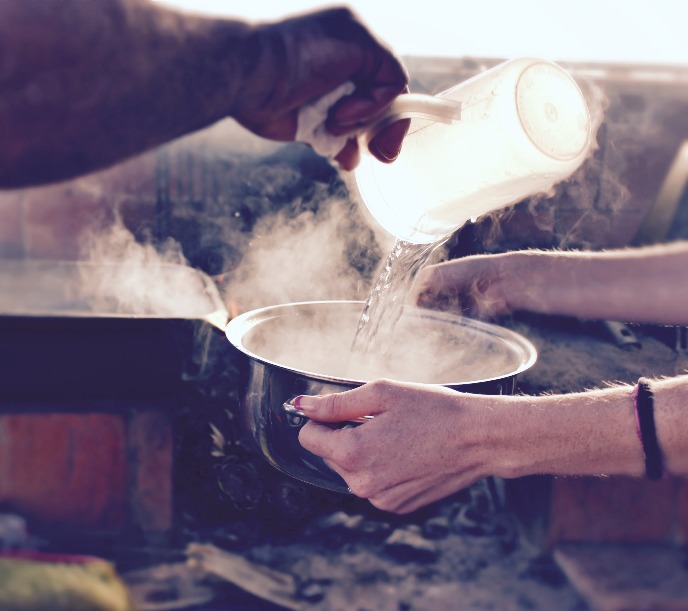Water conservation: reducing and reusing kitchen waste water

Even though the greater part of the earth’s surface is covered with water, the amount of fresh water available and suitable to nourish our population makes up only 0.007% of its body. In this blog, Lisa tells us a couple of tips on how to conserve and how to optimize our use of this essential natural resource at home.
Earth’s water cycle causes water to return to our lands, but our growing population influences the quality and quantity of this restituted water. By making use of our water supply wisely, we are capable of bringing down not only the amount of water but also the amount of energy that is needed for the process. So it's safe to say that the impact of water conservation is immense and that any effort to reduce water usage has a substantial effect on this process!
What can you do?
While efforts such as shortening your shower sessions and doing laundry less often have the largest impact on lowering your household's water usage, other efforts might be more accessible. When we look at kitchen wastewater, it's safe to say that most of us flush it directly down the drain. But what if we could reduce and recycle this water and make use of it as possibly a rich plant fertilizer or a fine hair conditioner?
Reduce
Reducing the loss of running water obviously is tremendously favorable. So waiting for the tap water to run cold without capturing the running water is a loss. The average household wastes a possible 10 liters of tap water a day by letting the tap water run cold, so whenever you have the space and possibility to store this warm water in a watering can, pan or bowl do not hesitate! You can use this water to water your plants, to cook with, or to soak your dishes.

Use your kitchen wastewater
Not recycling kitchen wastewater is undoubtedly a waste of rich fertilizer, especially when you do not have the space or time to develop a compost pile. Cooking water from eggs, pasta, and vegetables contains nutrients that help keep your plants healthy, green, and flourishing. After capturing your cooking water, let it cool off completely and either use it or store it.
Another example of rich cooking water is that of rice. As some of you might already be aware, rice water can be used as a conditioner that brings a lot of people many benefits to their scalp and hair. However, understand that this is very personal, so keep in mind to be careful when trying this for the first time.
These efforts have a substantial impact on our earth's water conservation. Whether we help to improve the quality of the water, tackle the unequal distribution of water, or contribute to nature conservation, there will always be a benefit that fits your interest!
Lisa is a 26-year old American Studies student from the Netherlands. Through her studies she continuously is inspired to contribute to the understanding and spread of genuine information. She hopes to accomplish this and simultaneously stimulate humanitarian and environmental improvement by means of her writing.

